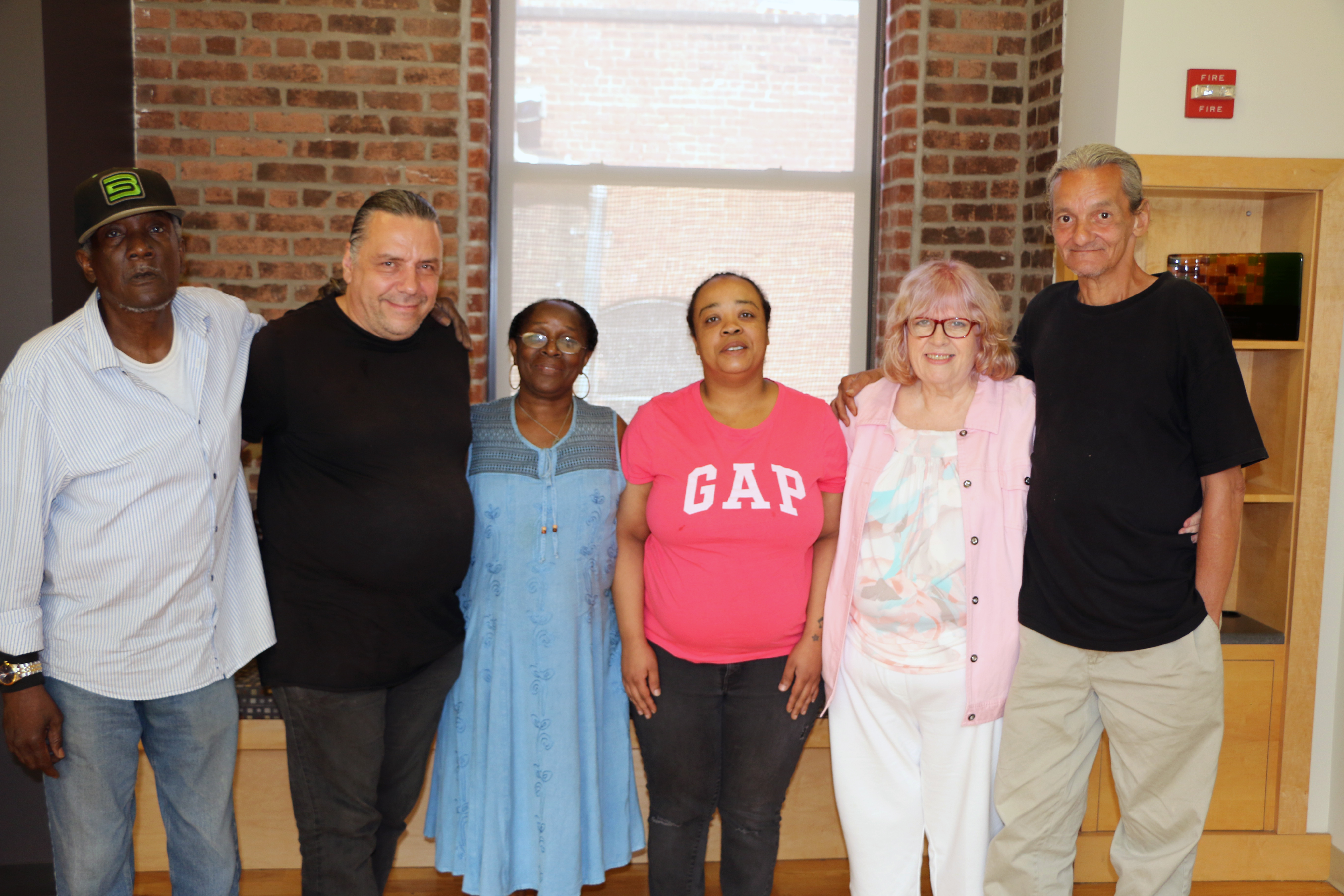Blog

Psychiatric Support: The Consumer’s Perspective
March 6, 2019For people outside of the medical community, the phrase “Grand Rounds” probably doesn’t sound familiar. But for many doctors, nurses, and psychiatrists, Grand Rounds have a storied history in the traditions of medicine. At CUCS, these special presentations offer our medical and mental health care providers with opportunities to expand their knowledge, receive continuing medical education credits, and learn about new and better ways to offer treatment and care to patients.
A particularly special Grand Rounds meeting in February brought CUCS’s Consumer Advisory Board (CAB) members together to discuss housing and health with more than 25 medical and mental health providers. CUCS’s CAB is a group of men and women who all have received care from CUCS and provide personal insight into how a medical provider can best help people who are currently homeless or living with mental illness, drawing from their lived experiences.
Members of the CAB wear many hats, including providing outreach, resources and referrals, and distributing cold weather care packages, but an integral part of their work is sharing what they’ve experienced with CUCS’s health providers. During the Grand Rounds session helmed by the CAB, 6 members shared stories about their involvement with shelters, supportive housing, primary care, mental illness, and the many challenges that come from not having a permanent address.
During the presentation, CUCS’s providers were encouraged to ask questions, prompting several passionate discussions. One provider question, about whether to hold group therapy sessions, garnered unanimous support from the CAB. Each member had positive experiences with group therapy and encouraged providers to explore the ways to incorporate groups alongside traditional sessions with clients.
CAB member Cheryl shared her experience with a weekly women’s group currently held at the Lenniger, where she lives. “Group therapy enables us to realize we’re not alone in our illness, sharing is part of my therapy,” she said. She went on to describe the group as a consistent environment where she finds strength, comfort, and confidence.
At the end of the discussion, the provider who first asked about group therapy pledged to continue developing and offering group sessions for her patients and thanked the CAB for sharing their thoughts and encouragement. For Daniel, a CAB member for nearly 6 years, providing encouragement is part of how he gives back and continues healing from his experiences with homelessness and mental illness, adding “half of getting better is just showing up and the other half is showing up for others.”
